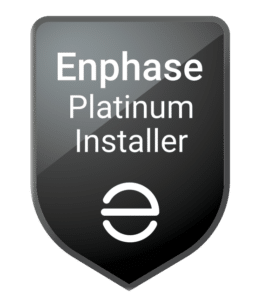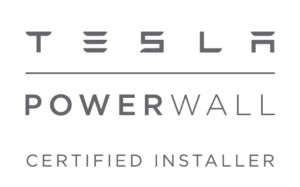Massachusetts is one of the best states in the country for solar energy thanks to the excellent rebates and incentives available here. When you install solar panels in Massachusetts, you can save thousands on your installation costs with federal tax credits and state-wide incentives. These savings make solar panels worth it for homes and buildings in Massachusetts.
Residential Solar Incentives
There are several home solar incentives available in Massachusetts. These are the most impactful:
| Incentive | Savings |
| Federal Solar Tax Credit | 30% of total solar installation costs. |
| Massachusetts Residential Energy Credit | 15% of total solar installation costs, up to $1,000. |
| Net Metering | Savings vary by system and electricity usage. Potential to decrease your electric bill to $0. |
| Renewable Energy Credits (RECs) | Earn one SREC for every MWh of renewable electricity your solar panels generate. |
Federal Solar Tax Credit
The federal solar tax credit (formally known as the Residential Clean Energy Credit) reduces your federal income tax liability by 30% of your total solar installation costs for the year you install your system. Almost all expenses related to a home solar installation are eligible for the tax credit, including solar battery storage. But keep in mind—to qualify for the solar tax credit, you must own your solar panels. That means you have to purchase them with cash or a loan. Leases and power purchase agreements do not qualify.
Massachusetts Residential Energy Credit
The Residential Energy Credit is a tax incentive for solar panels in Massachusetts specifically. It’s similar to the federal solar tax credit but is applied to your state income taxes. With the Massachusetts solar tax credit, you can save 15% on your home solar panel installation costs, up to $1,000.
Net Metering
Net metering is a solar incentive system that helps you save more money with solar panels over time. It essentially allows you to trade electricity with your utility provider. When your solar panels generate more power than you need, the excess is automatically exported to the electric grid and your electricity provider credits your account. When you need more electricity than you’re generating, you can use your credits to offset the cost of the power you buy from your utility company. All investor-owned utilities in Massachusetts are required to offer net metering and buy back solar electricity at the full retail rate.
Solar Renewable Energy Credits
Solar renewable energy credits (SRECs) are an incentive that allows you to get paid just for generating power with your solar panels. You earn one SREC for every megawatt-hour of electricity you generate, and you can sell them for cash. Utility companies buy SRECs because they can count the solar energy generation the SREC represents toward their Renewable Portfolio Standard (RPS) requirements. Residential solar panel systems under 25 kW can earn SRECs in Massachusetts.
Commercial Solar Incentives
Commercial solar panels are eligible for several incentives to reduce installation costs and increase return on investment. Businesses and organizations of all types and sizes can benefit from commercial solar incentives in Massachusetts. Here are some of the best for 2025:
| Incentive | Savings |
| Investment Tax Credit (ITC) | 30% of total solar installation costs |
| Direct Pay Credit for Tax-Exempt Organizations | 30% of total solar installation costs |
| Modified Accelerated Cost Recovery System (MACRS) | A tax depreciation system that allows businesses to recover their investment in solar panels faster through annual deductions. |
| Bonus Depreciation | Optional 100% first-year bonus under MACRS to speed up ROI |
| Net Metering | Savings vary by system and electricity usage. Potential to decrease your electric bill to $0. |
| Solar Renewable Energy Credits (SRECs) | Earn one SREC for every MWh of renewable electricity your solar panels generate. |
| Property Tax Exemptions | Most commercial solar installations are exempt from property tax evaluations in MA. |
| Grants & Financing | Receive funding from state and local programs. |
Investment Tax Credit
The Investment Tax Credit, also known as the commercial solar tax credit, reduces your federal income tax liability by 30% of your total solar installation costs for the year you install your system. The ITC is the best commercial solar incentive currently available and makes solar energy significantly more affordable for businesses. Almost all expenses related to a commercial solar installation are eligible for the tax credit, including materials (PV panels, batteries, mounting equipment, etc), labor, and permitting fees.
Solar Tax Credit—Direct Pay
Tax-exempt organizations that cannot benefit from tax credits are eligible for a direct payment worth 30% of their total solar installation costs in place of the solar tax credit. Most tax-exempt organizations are eligible, including nonprofits such as schools and religious groups, state and local governments, Tribal and Native Entities, and Rural Energy Cooperatives.
Modified Accelerated Cost Recovery System (MACRS)
The Modified Accelerated Cost Recovery System is a tax depreciation method that allows businesses to recover their investment in a solar energy system through annual deductions over a 5-year period. This makes it easier for your business to quickly recover the costs of your solar installation investment.
Bonus Depreciation
Under MACRS, tax law offers 100-percent, first-year ‘bonus’ depreciation for qualified commercial solar energy systems. Taxpayers may elect out of the first year depreciation and opt for a 5-year MACRS schedule if they wish.
Net Metering for Businesses
Commercial solar power systems can enroll in net metering in Massachusetts, a solar incentive system designed to reduce energy costs. With solar net metering, you can sell the excess solar power your commercial system generates to your utility company in exchange for credits to your account. When your solar panels are not producing enough electricity and you need to buy power from the electric grid, you can use your credits to cover the cost. The credits can be rolled over from month to month, so you can bank credit in the summer when the days are long and sunny and use them in the winter when there is less sunlight and solar production is down.
Solar Renewable Energy Credits (SRECs)
Businesses can earn SRECs by generating solar electricity, which can be sold on an open market for additional revenue. You earn one SREC for every megawatt-hour of electricity you generate.
Property Tax Exemptions
Commercial solar panels can increase the value of your building, but that doesn’t always mean they increase your property taxes. Many Massachusetts municipalities offer property tax exemptions or credits for commercial solar installations.
Grants & Financing
Various state and local programs provide grants, loans, and other financial incentives to support the adoption of solar energy.
Residential & Commercial Solar Installation on the Cape
There’s never been a better time to install solar panels in Massachusetts. My Generation Energy can help you take full advantage of the tax credits and incentives available in Massachusetts. We’re a locally owned solar company that’s been installing solar panels for homes and businesses on Cape Cod and throughout the Greater Boston area since 2008. We know solar in Massachusetts and will help you get the most out of your investment in residential or commercial solar panels.





